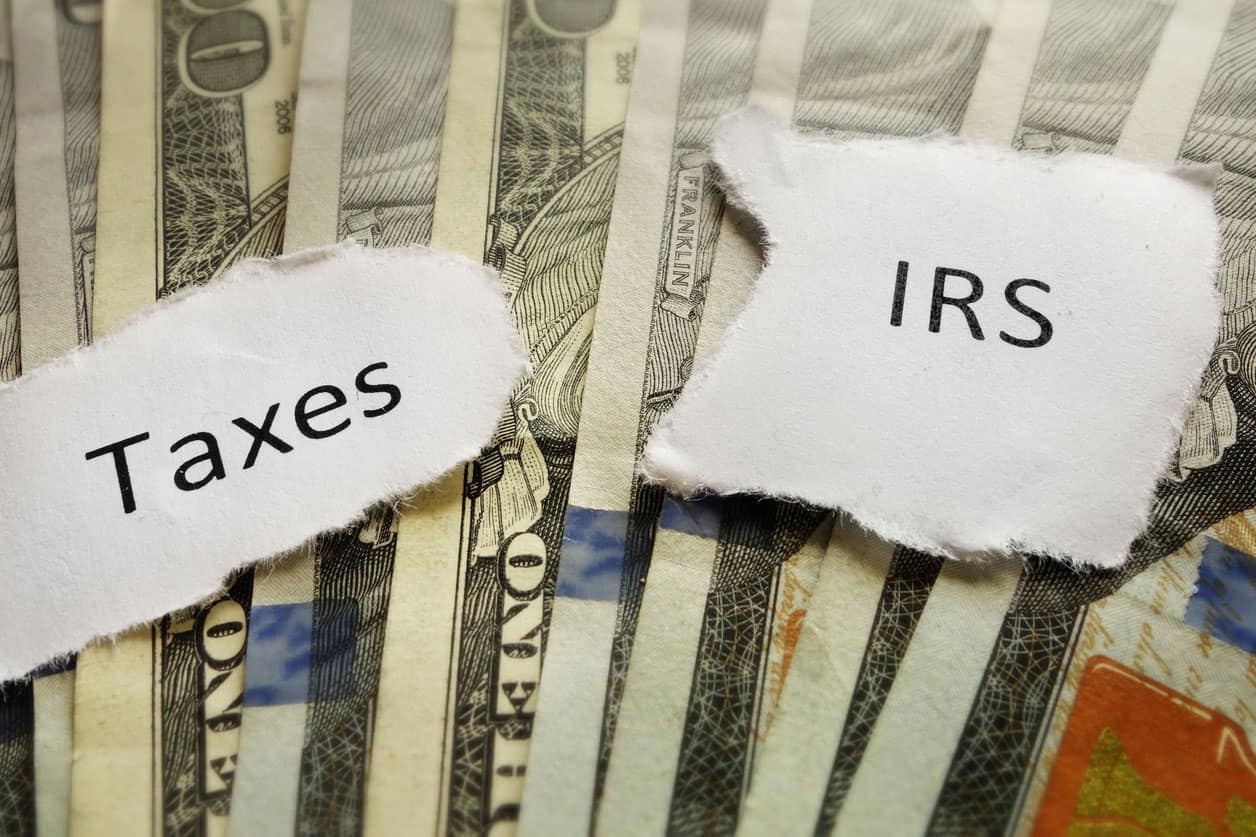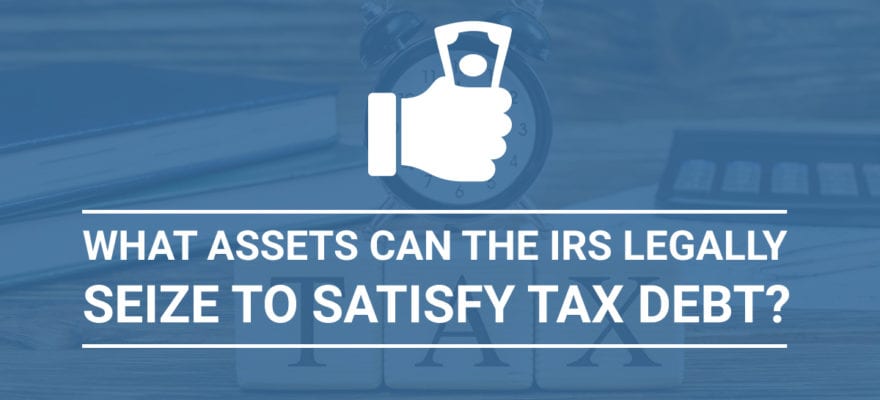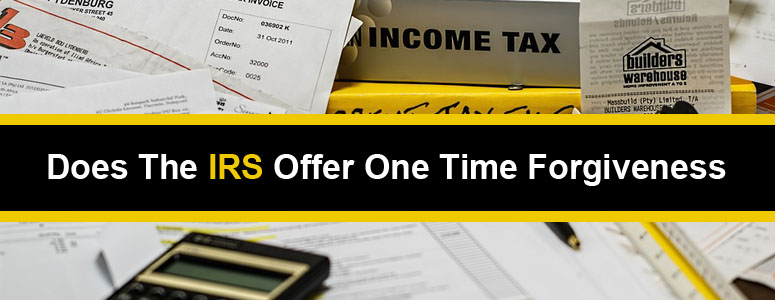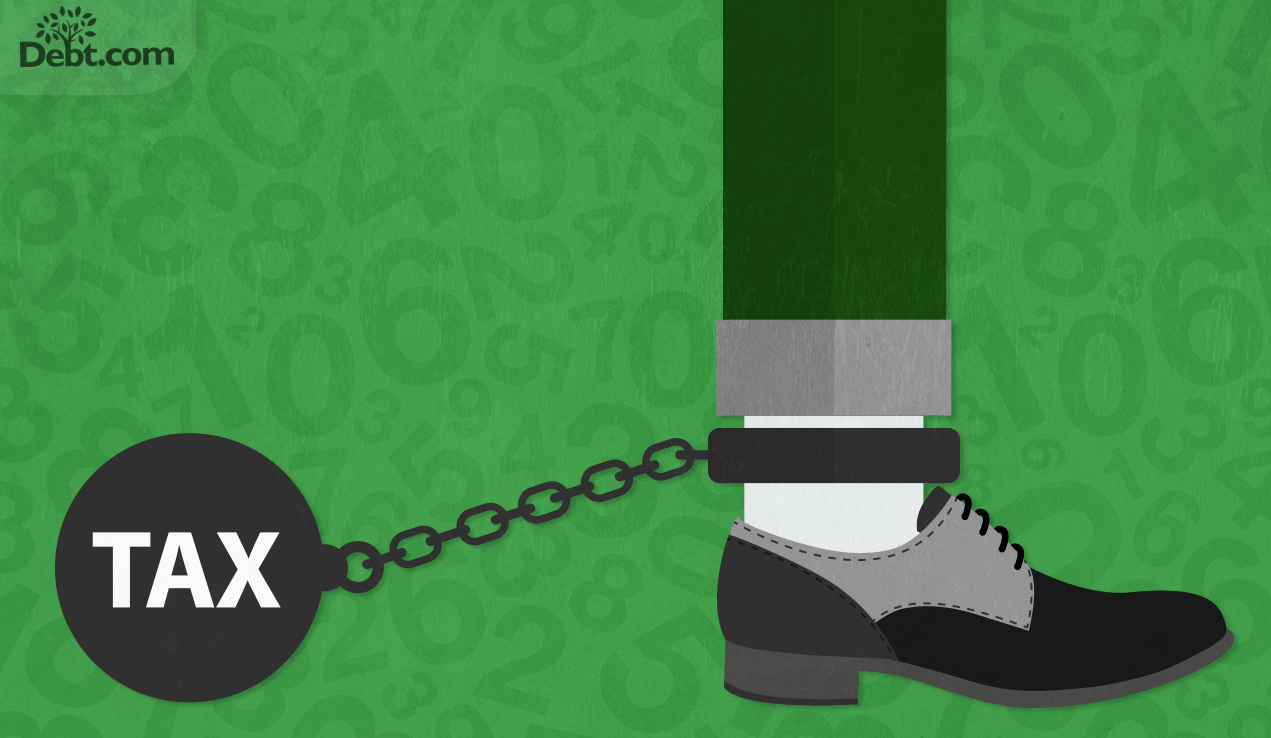These special circumstances typically have to do with other tax relief provisions that taxpayers may try to take before the period ends. If you owe back taxes from 10 years ago or longer, you might feel you are safe from the long arm of the irs collection department.

Tax Debt Forgiveness How To Get Your Tax Debt Forgiven - Debtcom
After 10 years, the irs will clear the account balances to.

Does the irs write off tax debt after 10 years. How long can the irs collect back taxes? Generally speaking, the irs has 10 years to collect an unpaid tax debt, after which the debt is expunged. Although it may seem counterproductive for a government agency to limit its own collection abilities, old debts are harder to collect than recent ones.
But that 10 year period may be longer than you expect, given lengthy suspensions, the irs’s date of tax assessment versus your last return, and whether or not you have been keeping up to date with your tax returns since the debt period began. As previously mentioned, the statute of limitations on a tax debt is ten years. Specifically, internal revenue code 6502, “collection after assessment,” limits the irs to 10 years to collect a tax debt.
If you make it to the end of the ten years (and nothing extends the collection period—see below), the tax, penalty and interest are written off and you no longer owe the debt. For instance, by law the irs is unable to collect a debt older than 10 years. What if you don’t file a return and the irs files one for you?
Did you know that the irs only has 10 years to collect a tax debt? If it can’t collect tax debt in that time, the irs will write it off. While many liabilities may become “un”collectible after the set number of years have passed (per each state’s statute of limitations), the irs can collect on unpaid taxes for up to ten years with some expectations.
But after 10 years of receiving irs bills, they will not write to you and let you know when. Yes, your irs debt will be forgiven after ten years. The 10 years starts at the debt of “assessment,” which is when the irs places your tax debt in their records.
After that, the irs should forgive your debt. This deadline is called the collection statute expiration date, and it’s usually 10 years after the irs charges you (or, “assesses”) the taxes. Each tax assessment has a collection statute expiration date (csed).
The lien will go away after 10 years because the taxes can no longer be collected. Does the irs forgive debt after 10 years? Generally speaking, the internal revenue service has a maximum of ten years to collect on unpaid taxes.
As already hinted at, the statute of limitations on irs debt is 10 years. Therefore, if your tax debt is from over 10 years ago, it should be forgiven, as the government is not legally able to collect the debt. Not all taxes are dischargeable in bankruptcy.
In general, the internal revenue service (irs) has 10 years to collect unpaid tax debt. After that, the debt is wiped clean from its books and the irs writes it. You’ll benefit from the cancellation of debt or tax debt relief after 10 years, which means your tax liability that is past a decade old will be written off.
In addition, the irs typically does not collect a debt with a low realistic collection potential (rcp). As a matter of fact, many aren't. The statute of limitations ensures that the irs focuses its available time and resources on those debts it is most likely to collect.
In general, the internal revenue service (irs) has 10 years to collect unpaid tax debt. Under certain circumstances, the irs will forgive tax debt after 10 years. Towards the end of the csed, the irs has a tendency to become more aggressive in its collection efforts, hoping that the taxpayer will pay as much as possible before the deadline or agree to extend it.
The irs only has 10 years to collect your unpaid taxes. Will your tax debt be forgiven after 10 years? When the ten years are up, the irs is required to.
Yes, indeed, the length of time the irs is allowed to collect a tax debt is generally limited to ten years, according to the statute of limitations on irs collections. This is called the 10 year statute of limitations. By law, the irs statute of limitations on collecting a tax debt is 10 years.
If you owe money to the irs due to unpaid taxes, you won’t have to pay it after the collection period has passed. This is considered a “write off”. November 18, 2021 by karen reed, ea.
According to federal tax law, internal revenue code (“i.r.c.”) sec. Internal revenue code section 6502 provides that the length of the period for collection after assessment of a tax liability is 10 years. This means that under normal circumstances the irs can no longer pursue collections action against you if 10 years have passed since the clock started on your tax debt.
After that, the debt is wiped clean from its books and the irs writes it off. The irs has 10 years from the date of assessment to collect all taxes. This is normally right after you file your tax return, and normally ends 10 years after.
Practically, this means that your net equity in your assets (home, 401(k), savings, investments, etc.) plus your monthly disposable income (your average monthly income minus your allowable monthly living expenses) is less than the tax you owe. After that time has expired, the obligation is entirely wiped clean and removed from a taxpayer’s account. An assessment is nothing more than the recording of your tax debt in the irs’s records.
The 10 years begins when an act is taken to create the debt. For example, if an individual files for an offer in compromise, which allows them to pay a portion of their tax debt without having to pay it all, then he or she is not. Does the irs forgive tax liability after 10 years?
It may sound appealing to wait out the irs, but it’s not without consequences. That is usually the filing of a tax return with an unpaid balance, resulting in an ‘assessment” by the irs of the liability. The collection statute expiration ends the government's right to pursue collection of a liability.
Federal law gives the irs only ten years to collect your tax debt. 6502, the length of the period for the irs to collect is 10 years after “assessment” of a tax liability. It is not in the financial interest of.
The collection timeframe can also start from the “assessment” of a balance due from an audit.

Pin By Tax Queen Taxes For Rvers D On Tax Relief Tax Debt Debt Relief Irs Taxes

What Is Tax Debt Unpaid Back Taxes Can Cost You - Debtcom

The Proven Way To Settle Your Tax Debt With The Irs - Debtcom

Irs Debt Forgiveness And Irs Tax Forgiveness Services

Irs Fresh Start Program How Does It Work Infographic Start Program Irs Work Infographic

Pin On Law Books For Lawyers And Law Students

Does The Irs Forgive Tax Debt After 10 Years Heartland Tax Solutions

Pin On Tax Season

The 6 Points That Your Business Should Not Forget In Your Tax Return Httpfeedproxygooglecomrentrepreneurlat In 2021 Income Investing Debt Settlement Debt Free

Tax Debt Forgiveness How To Get Your Tax Debt Forgiven - Debtcom

What Assets Can The Irs Legally Seize To Satisfy Tax Debt - Paladini Law

April 15 -- Ugh Pass The Honey These Are Taxing Times Tax Write Offs Tax Deductions Filing Taxes

Does The Irs Offer One Time Forgiveness Tax Debt Advisors

Tax Information Center - Tax Tips Hr Block Filing Taxes Income Tax Tax Guide

Irs Statue Of Limitations - Precision Tax Relief

Did You Know About The Time Limit On Irs Collections Irs Collection Tax Deduct Funds Taxtips Taxlaw Taxpay Consult Taxlad Tax Debt Irs Did You Know

Liens And Levies Md Va Pa Strategic Tax Resolution Tax Debt Irs Taxes Debt Relief

Know What To Expect During The Irs Collections Process - Debtcom

Pay Off Less Tax Debt Video Tax Debt Offer In Compromise Money Management